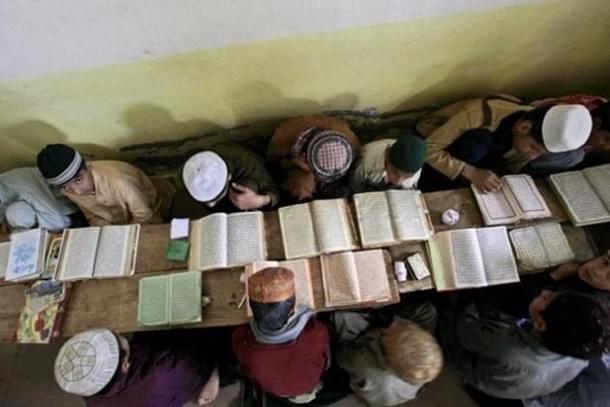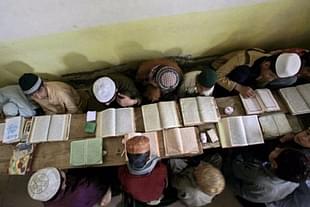Politics
Non-Muslim Students In Uttarakhand's Madrasas: NCPCR Raises Concerns, Congress Targets BJP Government
Bhuvan Krishna
Nov 08, 2023, 01:31 PM | Updated 01:25 PM IST
Save & read from anywhere!
Bookmark stories for easy access on any device or the Swarajya app.


The National Commission for Protection of Child Rights (NCPCR) has raised concerns about a report by the Uttarakhand Madrasa Education Board, revealing that nearly 10 per cent of the 7,399 students in 30 madrasas across the state are non-Muslims.
The NCPCR is seeking clarification from the Minority Welfare Department as to why these non-Muslim children are not enrolled in "schools" under the Right to Education Act, arguing that madrasas do not fall within the act's framework.
The Principal Secretary of the Minority Welfare Department has been summoned to appear before the commission.
The opposition Congress party has also entered the debate, asserting that the presence of 749 non-Muslim students in madrasas highlights the state of education in Uttarakhand, particularly under the BJP government's Hindutva model.
Uttarakhand Congress chief spokesperson Garima Mehra Dasauni stated, “If non-Muslims have to send their children to study in madrasas, it is time for the Uttarakhand government to introspect.”
Manveer Singh Chauhan, the BJP state media in-charge, assured that Chief Minister Pushkar Singh Dhami is aware of the issue and that efforts will be made to admit these children into government schools.
He mentioned that the circumstances surrounding the admission of these children to madrasas are under investigation, and steps have been taken to close down fraudulently run madrasas while investigating others.
The collection of data on non-Muslim students in madrasas was initiated as per a previous directive from the NCPCR to the Waqf Board, with the aim of identifying government-aided Islamic seminaries where Hindu children were enrolled.
Notably, the Uttarakhand Waqf Board, responsible for providing education in madrasas, had earlier announced plans for modernisation, including implementing the NCERT syllabus, scientific learning, and improved infrastructure.
They also introduced a uniform dress code and school hours in line with other schools. Furthermore, the board intends to introduce Sanskrit in madrasas registered with it, with the involvement of Hindu priests to facilitate Sanskrit teaching.
Shadab Shams, chairman of the Waqf Board and a BJP member, expressed the belief that modernising madrasas would make them more appealing to Hindu students. He emphasised that this modernisation process would commence in the next academic session, with the initial development of four madrasas.
The state government-managed Uttarakhand Madrasa Education Board, which regulates madrasas, has stated that non-Muslim children voluntarily choose to attend their institutions.
Shams, addressing the controversy, emphasised the importance of assessing the quality of education provided in these madrasas.
He highlighted that the madrasa board follows a set syllabus, covering various subjects beyond religious education, and suggested that this should alleviate concerns.
Uttarakhand is known as Devbhoomi, the "Land of the Gods," and Shams stressed the importance of embracing the state's cultural heritage to bridge religious gaps.
Bhuvan Krishna is Staff Writer at Swarajya.




